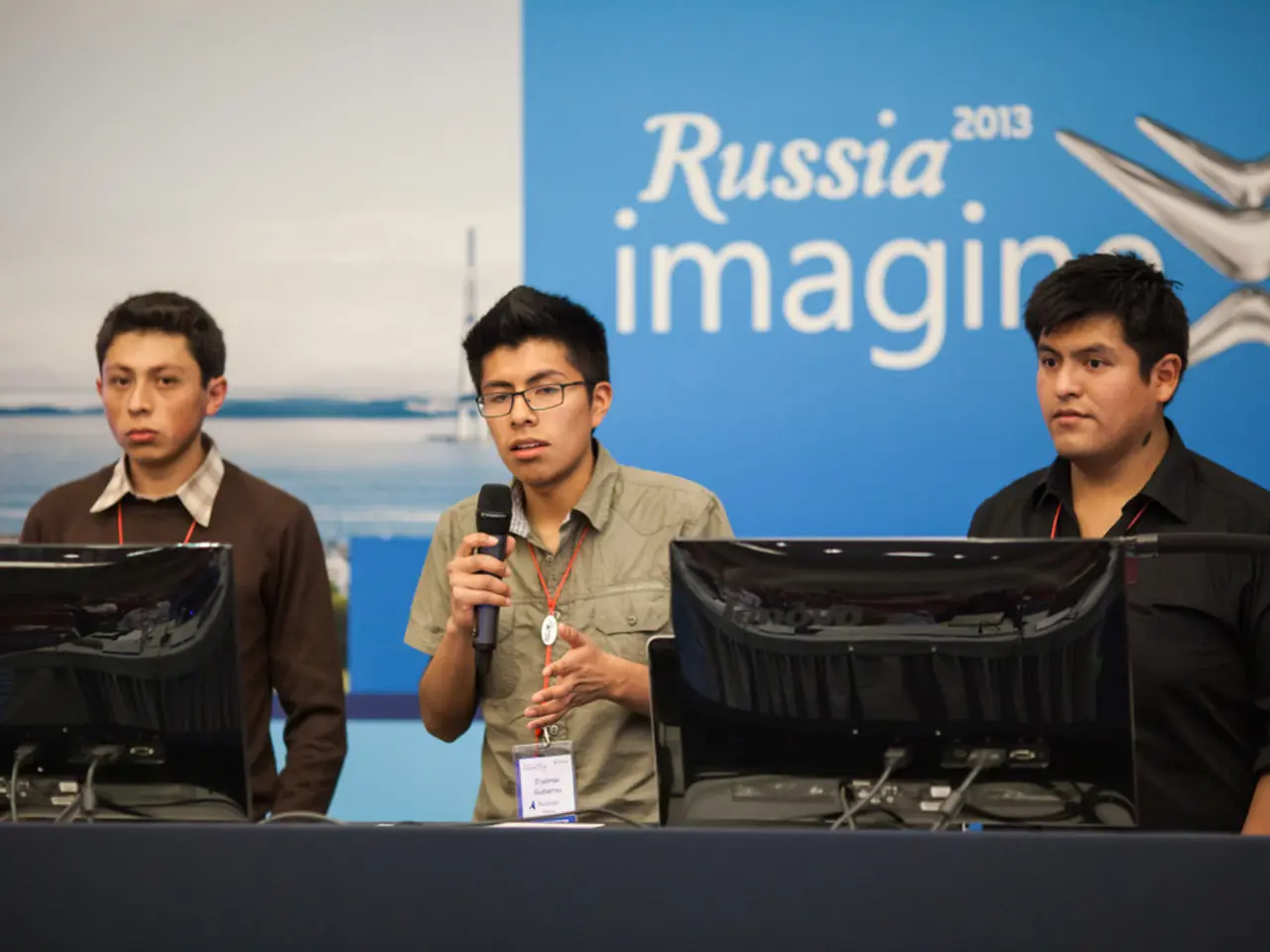US efforts intensify in drawing Asia-Pacific allies towards China
In the dynamic landscape of the Asia Pacific region, Japan and Australia are moving towards a more independent foreign policy, reducing their reliance on the United States. This shift is driven by a mix of strategic, economic, and political factors.
The increasing pressure from the United States for explicit security commitments, particularly regarding Taiwan, has unsettled both allies. Both countries value strategic ambiguity to avoid being drawn into conflicts at Washington's behest. Japan and Australia are also seeking a more balanced approach, investing in their own defence capabilities rather than relying solely on US-led security frameworks.
Economically, both nations have vital interests tied to the region, independent of the US. Japan and South Korea's massive investments in Australian liquefied natural gas (LNG) projects have created a complex web of energy interdependence that transcends US strategic priorities. This investment is aimed at securing energy supplies but also extends to reselling Australian gas across Asia, aligning Japanese and Australian corporate and national interests more closely with broader Asian markets.
Geopolitically, Japan and Australia are diversifying their partnerships to avoid over-reliance on the US, especially as China's influence grows and regional security becomes more multipolar. Both countries are hedging against the risks of great power conflict.
Anthony Albanese, the Australian Prime Minister, sees the value of a constructive relationship with China, which is Australia's biggest trading partner. On the other hand, US Under-Secretary for Defense Elbridge Colby is believed to be behind the reports, but there is no official US commitment to Taiwan's defence if reunification were to be attempted.
The Japanese Prime Minister, Shigeru Ishiba, has called for his country to become more self-sufficient in security, energy, and food, and less dependent on America. US defence officials are reportedly demanding that Japan and Australia clarify what they would do in the event of a US-China war over Taiwan.
The shift towards independence is not total—military cooperation with the US remains substantial—but both nations are clearly seeking a more nuanced, autonomous role in the evolving Asia Pacific order. Australian Prime Minister Anthony Albanese has emphasised the importance of thinking and acting for themselves and shaping their own future.
The story of the next 50 years may well be 'largely written' in the region, according to Marco Rubio, the US Secretary of State. However, some have expressed concerns about the coherence and counterproductiveness of American foreign policy in the Asia Pacific.
In the midst of these shifting dynamics, the US is due to impose tariffs on August 1, and whatever rates they are set at, they are expected to hurt countries in the Asia Pacific. The US Ambassador-designate to Singapore, Anjani Sinha, may face challenges given his weak performance during a US Senate confirmation hearing, which has raised concerns about his qualifications, as he is a surgeon by profession.
Amidst these changes, leaders from Asean Dialogue Partners, including China, Australia, Japan, Russia, Canada, South Korea, New Zealand, and India, were in attendance. Australian Prime Minister Anthony Albanese is currently on a six-day visit to China, accompanied by an entourage of business leaders. During his visit, he had a private lunch with President Xi Jinping and a walk along the Great Wall.
In conclusion, the Asia Pacific region is experiencing a significant shift in foreign policy dynamics, with Japan and Australia moving towards greater independence and less reliance on the US. This shift is driven by a complex interplay of strategic, economic, and political factors, and it remains to be seen how this will shape the region's future.
- In the Asia Pacific region, Japan and Australia's foreign policy is leaning towards independence, reducing their reliance on the United States.
- Strategic, economic, and political factors are driving this shift in Japan and Australia's foreign policy.
- The increasing US pressure for security commitments, particularly concerning Taiwan, has unsettled Japan and Australia, who value strategic ambiguity.
- Both countries are investing in their own defence capabilities instead of relying solely on US-led security frameworks.
- Japan and South Korea's investments in Australian liquefied natural gas projects have created an energy interdependence that goes beyond US strategic priorities.
- Geopolitically, Japan and Australia are diversifying partnerships to avoid over-reliance on the US, as China's influence grows and regional security becomes more multipolar.
- The US is imposing tariffs on countries in the Asia Pacific, which are expected to cause harm in the region, and the US Ambassador-designate to Singapore may face challenges due to his questionable qualifications.








